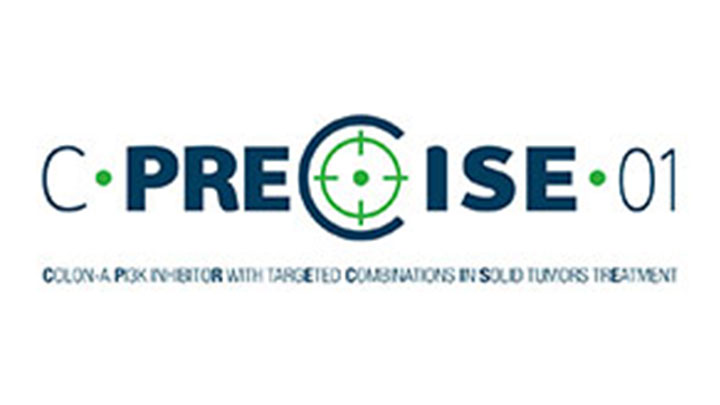Welcome to the News & More section. Here you will find general information in the form of press releases, news and the latest graphical material.
2020 - 07 - 02
Menarini Ricerche Announces C-PRECISE-01, a New Phase Ib/II Trial of MEN1611 in Colorectal Cancer


Pomezia, Italy, July 2nd, 2020 – Menarini Ricerche, the R&D division of the Menarini Group, announced today that it plans to launch in the second-half of 2020 a new phase Ib/II trial of MEN1611, a potent and selective orally available phosphatidylinositol 3-kinase inhibitor currently in development for the treatment of breast cancer. The new study, called C-PRECISE-01, will evaluate MEN1611 and cetuximab in patients with PIK3CA mutated, RAS and RAF wild-type metastatic colorectal cancer (mCRC), failing irinotecan, oxaliplatin, 5-FU and anti-EGFR containing regimens.
The study design will be presented at the virtual 2020 ESMO World Congress on Gastrointestinal Cancer on July [1-4], with the e-poster entitled “C-PRECISE-01 Study: a phase Ib/II trial of MEN1611, a PI3K inhibitor, and cetuximab in patients with PIK3CA mutated metastatic colorectal cancer failing irinotecan, oxaliplatin, 5-FU and anti-EGFR containing regimens”.
MEN1611 is an oral PI3K inhibitor active on the p110α, β and γ isoforms, while sparing the δ. Preclinical and clinical evidence supports the development of MEN1611 in combination with other agents in the context of solid tumors. The presence of PIK3CA mutations in mCRC has been reported to correlate with a negative prediction of response to anti-EGFR treatment, making PI3K an attractive therapeutic target. The primary objective of the C-PRECISE-01 study is to determine the combination RP2D and to assess the antitumor activity of MEN1611. Secondary objectives will include the assessment of safety, tolerability and pharmacokinetics profile of MEN1611 in combination with cetuximab.
Andrea Pellacani, General Manager of Menarini Ricerche, commented: “Colorectal cancer is among the most prevalent malignancies in the world, and there is an urgent need to discover new therapeutic options to help CRC patients, especially those with metastatic lesions. The initiation of the C-PRECISE-01 trial will give us the possibility to investigate the potential of MEN1611 in a disease with high medical need, where PIK3CA represents a suitable therapeutic target. This confirms our commitment to advance precision oncology and develop effective healthcare solutions that can make the difference for cancer patients”.
















